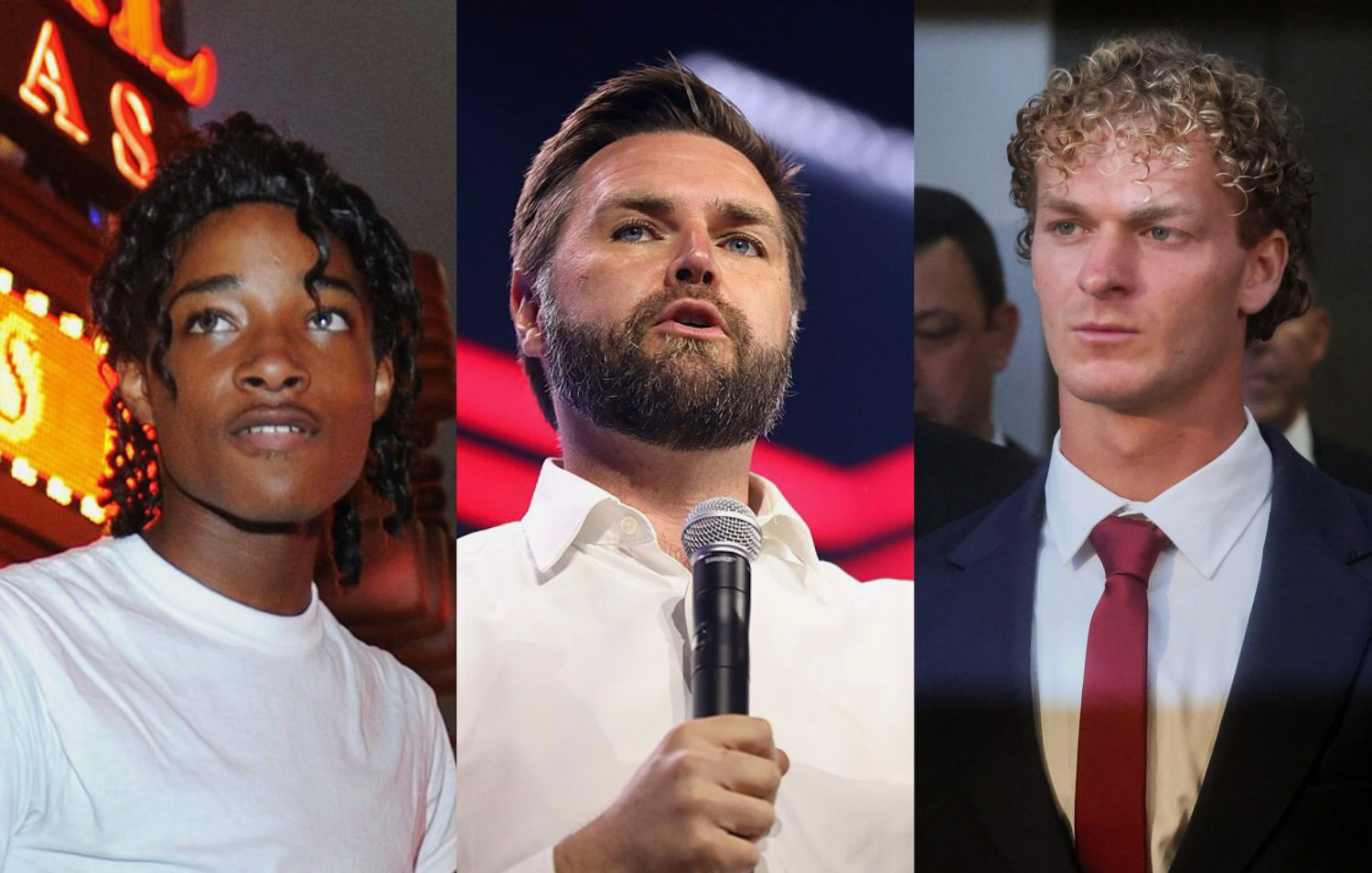
December 13, 2024
From Killing Jordan Neely To Hanging With JD Vance: Daniel Penny Is Living His Best White-Privileged Life
Celebrating a killer as a modern-day hero is not just about one man’s actions—it’s about the stories we tell ourselves as a nation.
America’s elite’s fascination with the white vigilante has resurfaced in the form of Daniel Penny. The Marine veteran, recently acquitted of homicide in Jordan Neely’s death, is now being lionized by President-elect Donald Trump and his goofy VP-elect J.D. Vance. Their embrace of Penny as a national hero revives a long and troubling legacy of racialized violence cloaked in the guise of righteousness.
This narrative is not new. From Bernhard Goetz’s 1984 subway shooting to Dylann Roof’s white supremacist murderous rampage, the myth of the white savior has repeatedly been weaponized to excuse or glorify lethal actions against marginalized people.
The Penny Case: A Catalyst for Division
Daniel Penny’s actions in May 2023 hyperemphasized the nation’s continued division. While some see him as a brave protector, others decry him as a symbol of unchecked white vigilantism. His acquittal for the death of Neely—a Black man experiencing homelessness and mental illness—sent shockwaves through a nation already grappling with questions of race, justice, and public safety.
Penny’s invitation to join Trump and Vance at the Army-Navy game on December 14 underscores how the political right has embraced his story as an exemplar of “backbone” in the face of supposed liberal overreach. Vance’s statement, describing Manhattan’s district attorney as leading a “mob,” reflects a broader strategy of portraying white defendants as victims of an overzealous justice system—especially when their actions target Black victims.
Historical Parallels: Bernhard Goetz and Dylann Roof
The celebration of Penny echoes the case of Bernhard Goetz, a white man who shot four Black teenagers on a New York subway in 1984. Like Penny, many lauded Goetz as a hero protecting himself in a lawless environment. Despite the racial undertones of his actions, Goetz’s acquittal on attempted murder charges bolstered the perception of him as a vigilante savior.
Fast forward to 2015, and Dylann Roof took this ideology to its grotesque extreme. Roof, who murdered nine Black churchgoers in Charleston, South Carolina, explicitly framed his massacre as a defense of white America. While Roof’s actions were universally condemned, his ideology was a product of the same cultural underpinnings that valorized Goetz and now Penny: the myth that white violence is justified to maintain order or protect society.
The Role of Politics in Shaping Narratives
Trump and Vance’s endorsement of Penny fits neatly into a broader political agenda. By elevating figures like Penny, they virtue signal their commitment to “law and order” while tapping into white grievance politics. Penny’s narrative aligns with right-wing efforts to paint progressive prosecutors as soft on crime and to perpetuate the idea that cities, especially those led by Democrats, are dystopian war zones.
This strategy isn’t merely about policy—it’s about identity. By framing Penny as a savior, Trump and Vance are appealing to a predominantly white base that feels threatened by demographic shifts and social progress. In this narrative, Penny isn’t just a man who subdued a subway rider; he’s a symbol of resistance against a perceived loss of control.
The white savior narrative is not only flawed but dangerous. It perpetuates the idea that violence is an acceptable solution to systemic problems like homelessness and mental illness. In Jordan Neely’s case, his death was a consequence of a society that failed to provide adequate support for its most vulnerable. Yet, Penny’s defenders have framed his actions as a necessary response to Neely’s supposed threat, ignoring the systemic failures that put both men in that subway car.
This myth also reinforces racial hierarchies by portraying white protagonists as protectors of a fragile society. It absolves them of accountability while dehumanizing their victims. Penny’s acquittal and subsequent glorification send a chilling message: that the lives of Black people like Jordan Neely are expendable in the name of maintaining order.
We must confront the systemic issues at play to move beyond these recurring tragedies. Mental health crises, racial inequality, and homelessness cannot be solved through acts of vigilantism or by lionizing those who commit them. Instead, they require public health, housing, and community-based solutions investments.
Politicians like Trump and Vance would instead exploit these issues for political gain rather than address their root causes. Their glorification of Penny distracts from the hard work of governing and a tacit endorsement of a world where individuals, not institutions, mete justice.
Celebrating a killer as a modern-day hero is not just about one man’s actions—it’s about the stories we tell ourselves as a nation. By elevating Penny, Trump, Vance, and their allies are perpetuating a dangerous myth that valorizes white violence and devalues Black lives. The current political and racial climate is not the America we should aspire to be. Instead, we must reject the white savior narrative and commit to building a society where justice is not defined by race or political expediency but by fairness and humanity for all.
RELATED CONTENT: Breaking: Daniel Penny Acquitted In Subway Death Of Jordan Neely